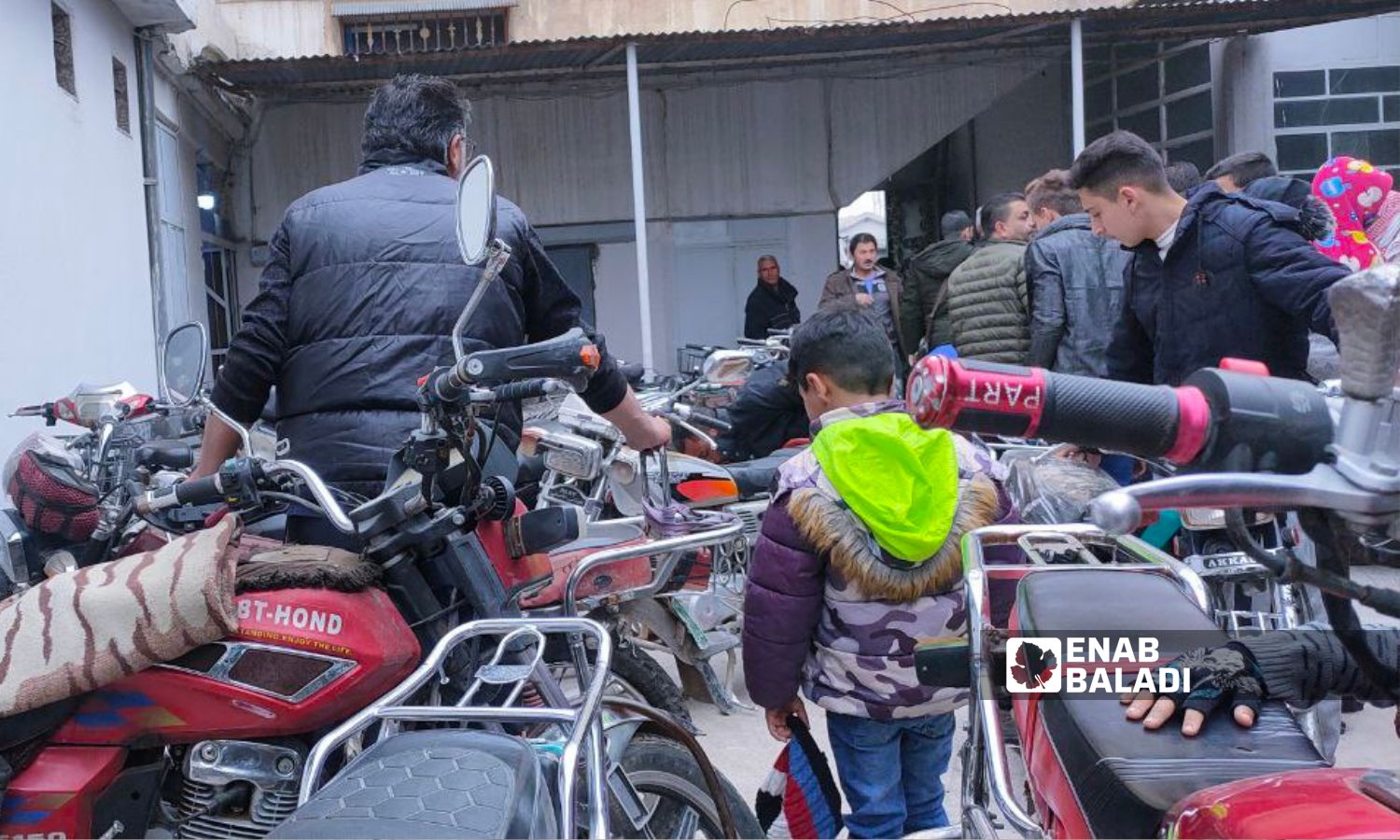



The ban on motorcycle movement imposed by the Autonomous Administration has affected the mobility of residents in its controlled areas in northeastern Syria, especially in the city of Qamishli, which relies on motorcycles for transportation and work.
The Autonomous Administration of North and East Syria (AANES) issued a decree on the 6th of March, prohibiting the movement of motorcycles in cities completely, to continue until the 6th of April.
Tariq works as an employee at a private transportation company in Qamishli with morning and evening shifts.
Tariq, who preferred not to give his full name for security reasons, said his motorcycle is the only means he depends on to reach his home in Hilaliyah (west of Qamishli) to his workplace in the industrial area east of Qamishli.
After the circular issued by the Autonomous Administration, Tariq began to find it difficult to go to work due to the lack of public transport, especially in the evening, which forces him to walk to his workplace and often arrive late, whereas he used to arrive in ten minutes.
For Tariq, taking a taxi is an unthinkable solution, as the taxi fare reaches 15,000 Syrian pounds in the morning and rises to about 35,000 pounds in the evening, while his salary is 1,300,000 Syrian pounds.
Tariq believes that banning motorcycles at this time for a full month is an “unstudied” decision, as a segment of the population depends on motorcycles to earn their living, especially with the advent of Ramadan, where expenses increase.
Adnan Hussein, a worker in one of the pharmaceutical warehouses in Qamishli, told Enab Baladi that the decision to ban the use of motorcycles greatly affected his job.
He added that he usually distributes the medicine to pharmacies using his motorcycle, which allows him quick movement, even within crowded streets, and timely delivery of medications.
However, he now faces difficulty in finding alternative and effective means of transportation, as walking or using public transportation does not offer the speed a motorcycle does.
Hussein tried using a bicycle as an alternative but stopped after several times since riding it with parcels of medicines is exhausting.
The warehouse, in turn, rented a small vehicle to facilitate the delivery process for Hussein, but this did not last long as it is a costly and impractical solution within the crowded city streets.
Some pharmacies request prompt delivery of medications, while mobilizing a vehicle for a single order is “very costly,” and the warehouse has to wait for several orders from different pharmacies to deliver them all at once.
This situation has caused several problems for the warehouse Hussein works in with the pharmacies due to delays in delivering orders.
The Autonomous Administration’s circular prohibiting motorcycles coincided with several occasions during the month of March, including International Women’s Day, Newroz, and the Qamishli Uprising, to prevent “terrorist” acts and ensure security and safety, according to the circular.
AANES has asked civilians to cooperate with the Internal Security Forces (Asayish) by reporting “any suspicious movements that raise suspicion.”
The Autonomous Administration issues such decrees on every occasion that is accompanied by human gatherings, in an attempt to prevent any type of attacks.
if you think the article contain wrong information or you have additional details Send Correction